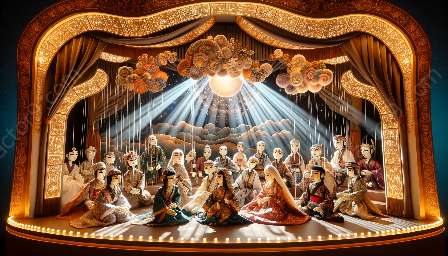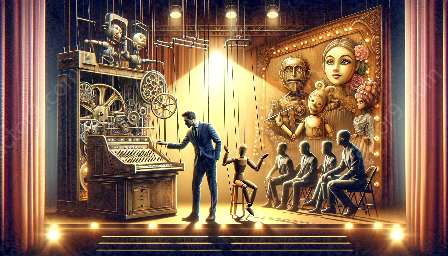Puppetry, an ancient art form dating back thousands of years, continues to captivate and entertain audiences around the world. However, the use of puppetry in entertainment raises several ethical considerations that puppeteers and creators must carefully navigate. This article will delve into the ethical aspects of puppetry in entertainment, the impact of puppetry on society, and how these considerations relate to careers in puppetry.
The Role and Impact of Puppetry in Entertainment
Puppetry has the power to evoke strong emotions and convey complex narratives, making it a versatile and compelling form of entertainment. From traditional hand puppets to advanced animatronic figures, puppetry has evolved to encompass various techniques and styles, contributing to its widespread appeal.
Despite its entertainment value, puppetry also holds a deeper societal significance. Puppetry has been used to educate, provoke thought, and address social and ethical issues. Through its ability to engage and connect with audiences, puppetry has the potential to influence perspectives and promote meaningful dialogue.
Ethical Considerations in Puppetry
As with any form of artistic expression, puppetry raises ethical questions regarding its portrayal of sensitive topics, the treatment of puppet characters, and the impact of puppetry on diverse audiences. Puppeteers and creators must consider the following ethical considerations:
- Representation: How are certain groups or cultures represented through puppetry, and what implications does this portrayal have?
- Content: What messages and values are conveyed through puppetry, and are they aligned with ethical standards?
- Respect: How are puppet characters treated and depicted, and what impact does this have on empathy and understanding?
- Impact: What influence does puppetry have on audiences, especially in terms of shaping perceptions and attitudes?
Addressing these ethical considerations requires a thoughtful and conscientious approach, emphasizing the responsibility that puppeteers and creators bear in shaping and presenting their art.
Impact and Responsibilities of Puppeteers
Puppeteers play a crucial role in shaping the impact of their work and upholding ethical standards within the entertainment industry. As professionals dedicated to the art of puppetry, they must consider the following responsibilities:
- Authentic Representation: Striving to represent diverse perspectives and cultures authentically and respectfully.
- Storytelling Integrity: Ensuring that the narratives conveyed through puppetry align with ethical storytelling principles and values.
- Empathy and Understanding: Fostering empathy and understanding through the portrayal of puppet characters and their interactions.
- Audience Awareness: Being mindful of the potential impact of puppetry on audiences and engaging in constructive dialogue.
By recognizing the ethical implications of their craft and embracing their responsibilities, puppeteers can contribute to the positive influence of puppetry in entertainment and society.
Exploring Careers in Puppetry
For individuals passionate about puppetry, pursuing a career in this field offers an avenue to express creativity, impact society, and uphold ethical standards. Careers in puppetry encompass a wide range of opportunities, including:
- Puppeteer: Bringing puppet characters to life through performance and storytelling.
- Puppet Designer: Crafting and creating intricate puppet figures, exploring various materials and techniques.
- Scriptwriter: Developing narratives and scripts tailored for puppetry productions, incorporating ethical storytelling elements.
- Director/Producer: Overseeing the creative and ethical aspects of puppetry productions, guiding the vision and impact of the work.
These career paths in puppetry not only offer creative fulfillment but also present opportunities to advocate for ethical considerations and positive societal impact through the art of puppetry.


























